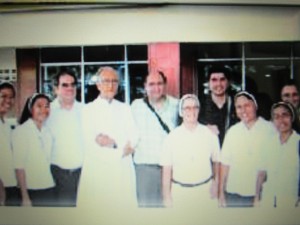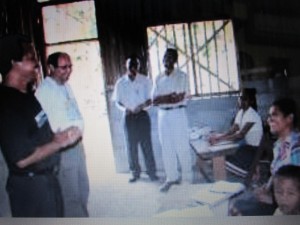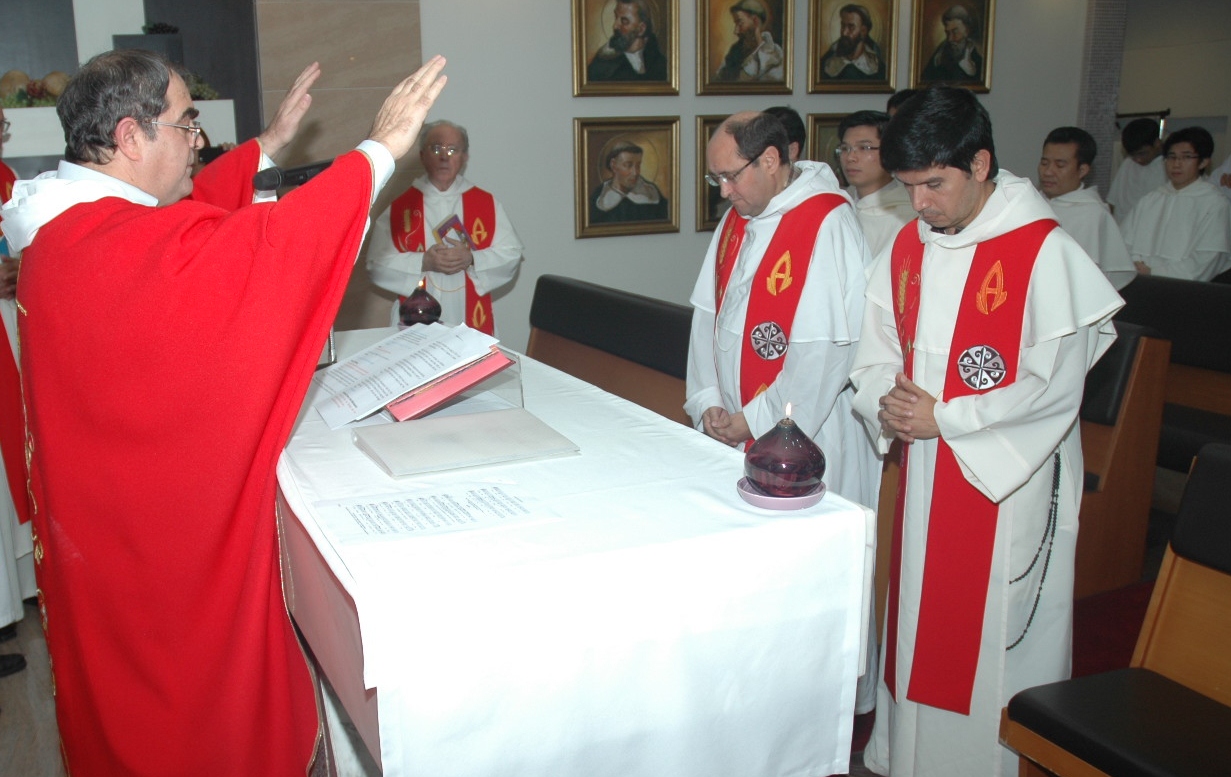Our arrival at the capital Dili on 19 of January was with a greatreception by the Dominican Sisters in Timor and by the Secretary of the Bishop at the Airport. There were also some other priests and Sisters.
 On the same day of our arrival, the Bishop welcomed us in his residence and invited us to collaborate with the Diocese of Dili in the quasi-Parish of Hatudo, in the southern part of the Island, about 120 kilometers from Dili and a 5 hour trip by car. He provided us transportation (his own car and driver) to go and see the Mission for us to know firsthand about the people and the state of the Mission.
The Parish Priest of Same (the parish under which our Mission is) welcomed us into his home, where we stayed overnight, and gave us a presentation of our Mission of Hatudo; the following day he accompanied us personally there. It is a district with about 11,000 inhabitants, with a territory that is quite big and comprises 5 chapels. In the centre of the Mission (Leo Lima), beside the main chapel, there is a community of Timorese Canossian Sisters and a house for the priests, which is currently being remodeled to accommodate us.
We were told that by the end of the month, they will finish it and then we can enter to live in it. There is electricity but not running water. The Mission also has a new kindergarten, various primary and secondary schools. But some are in a very poor state.
 Mission in Hatudo received us well. They are very amiable, simple and they like to tell us what they do. They seem to be well dedicated to their ministry.On the roads one can see children walking kilometers every day (an average of 5 or 6) to go to schools, some of them of the government, which were recently built while others are still under construction. The landscape is beautiful but the land seems to be very poor as it is rocky thus being not apt for planting. The climate is very warm and many trees had just been cut down along the roads to give way to the light posts. It is a Mission that is in great need and it will demand much sacrifice and great apostolic zeal. The people are simple, happy and receptive. For them the priest is almost a “god†whom they respect and admire. The clergy of the mountainous places which we passed through in our trip towards theThe people live in small settlements not very dispersed but always beside the principal roads, which are all in bad state. There are many typical Timorese houses which are built over some tree logs, with the domestic animals living under them in the open; the houses are made of bamboo and of thatched straw roofs. The people principally dedicate themselves to agriculture and they work in the mountains which are about a few kilometers away from the villages. They all go to work on their feet.
Mission in Hatudo received us well. They are very amiable, simple and they like to tell us what they do. They seem to be well dedicated to their ministry.On the roads one can see children walking kilometers every day (an average of 5 or 6) to go to schools, some of them of the government, which were recently built while others are still under construction. The landscape is beautiful but the land seems to be very poor as it is rocky thus being not apt for planting. The climate is very warm and many trees had just been cut down along the roads to give way to the light posts. It is a Mission that is in great need and it will demand much sacrifice and great apostolic zeal. The people are simple, happy and receptive. For them the priest is almost a “god†whom they respect and admire. The clergy of the mountainous places which we passed through in our trip towards theThe people live in small settlements not very dispersed but always beside the principal roads, which are all in bad state. There are many typical Timorese houses which are built over some tree logs, with the domestic animals living under them in the open; the houses are made of bamboo and of thatched straw roofs. The people principally dedicate themselves to agriculture and they work in the mountains which are about a few kilometers away from the villages. They all go to work on their feet.
During these 10 first days, aside from trying to get to know all the members of the Dominican Family in Timor Leste, which is composed of the Dominican Sisters of the Rosary and the Portuguese Dominican Sisters of Saint Catherine of Siena, we also took the opportunity toknow the other religious in Dili, the Major and Minor seminaries, the Nuncio and those in charge of the Spanish collaboration in Timor Leste. Everyone intimated to us their vision of the Church and of her concern for making Timor Leste a place that is more humane and moredignified.
We have only been here for a few days. The arrival always causes a great impact for the cultural change, but little by little we have already started to adjust ourselves to this new form of life and especially to its people. The good reception which we have received everywhere makes us feel more and more integrated in this country, where almost five hundred years ago, our Dominican Portuguese brethren sowed the seeds of faith.
                                    Fr.Ruben

